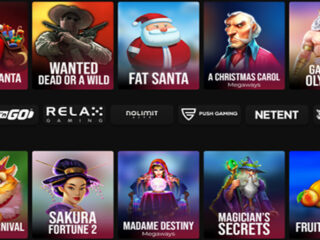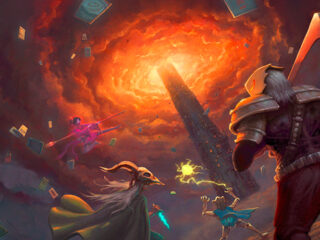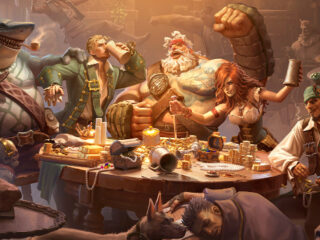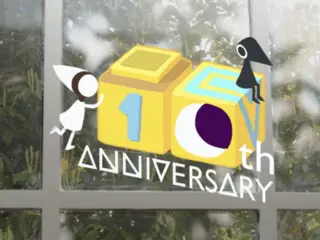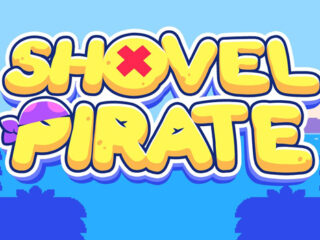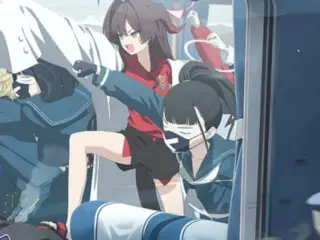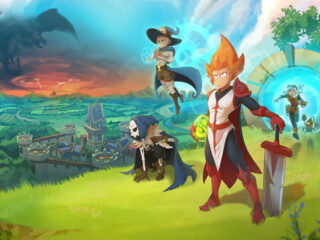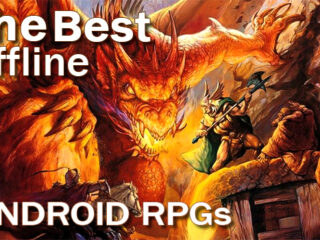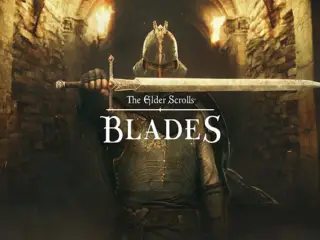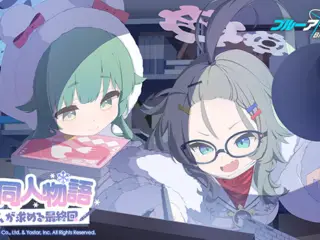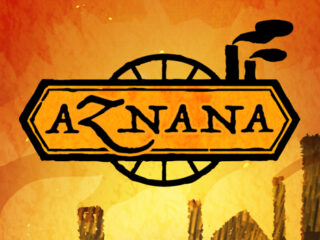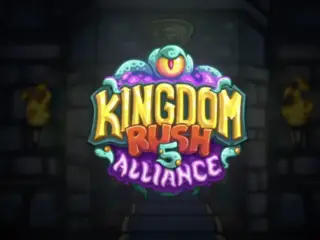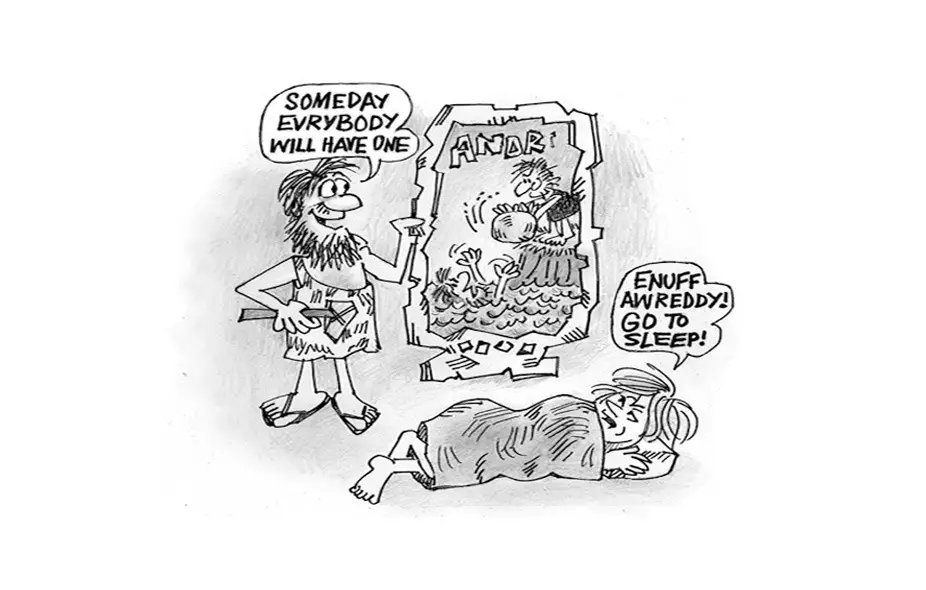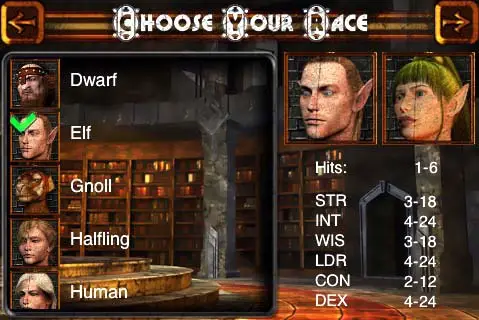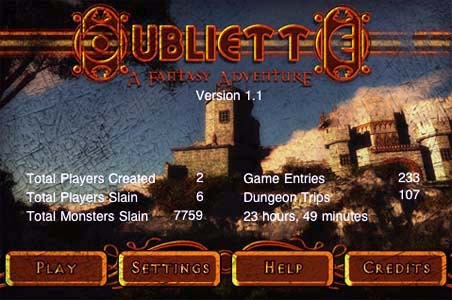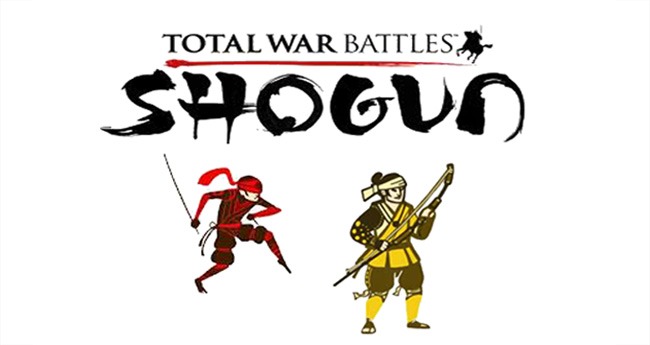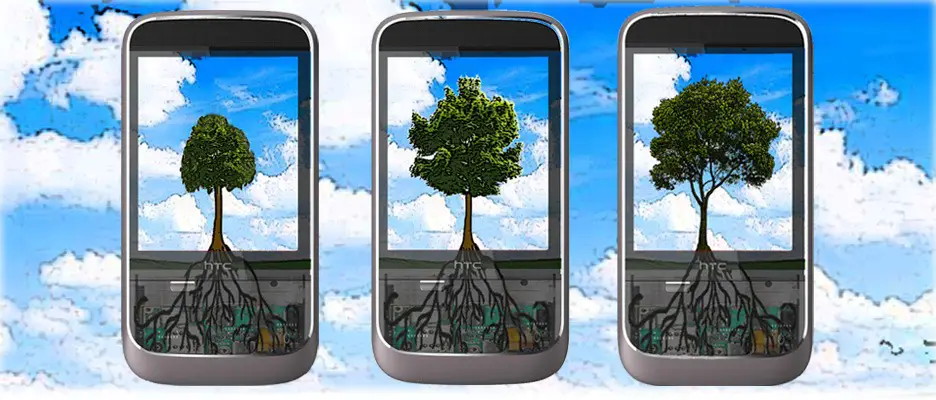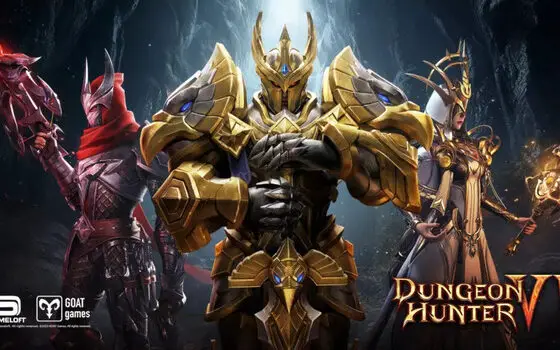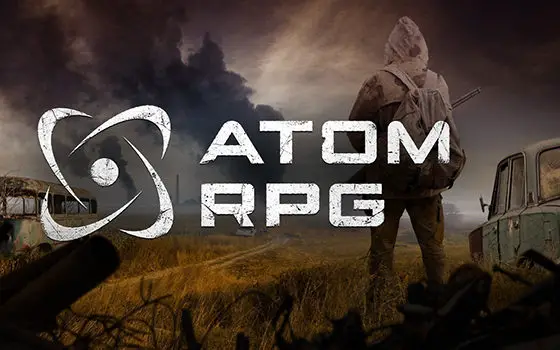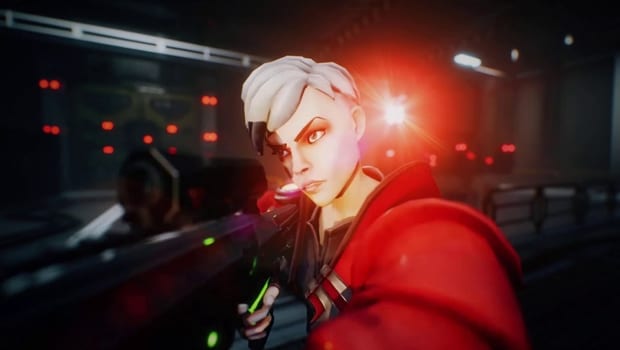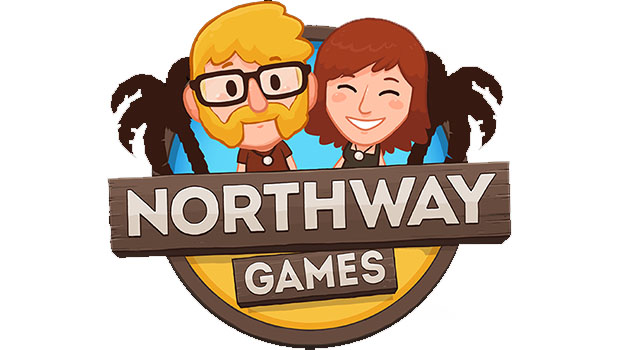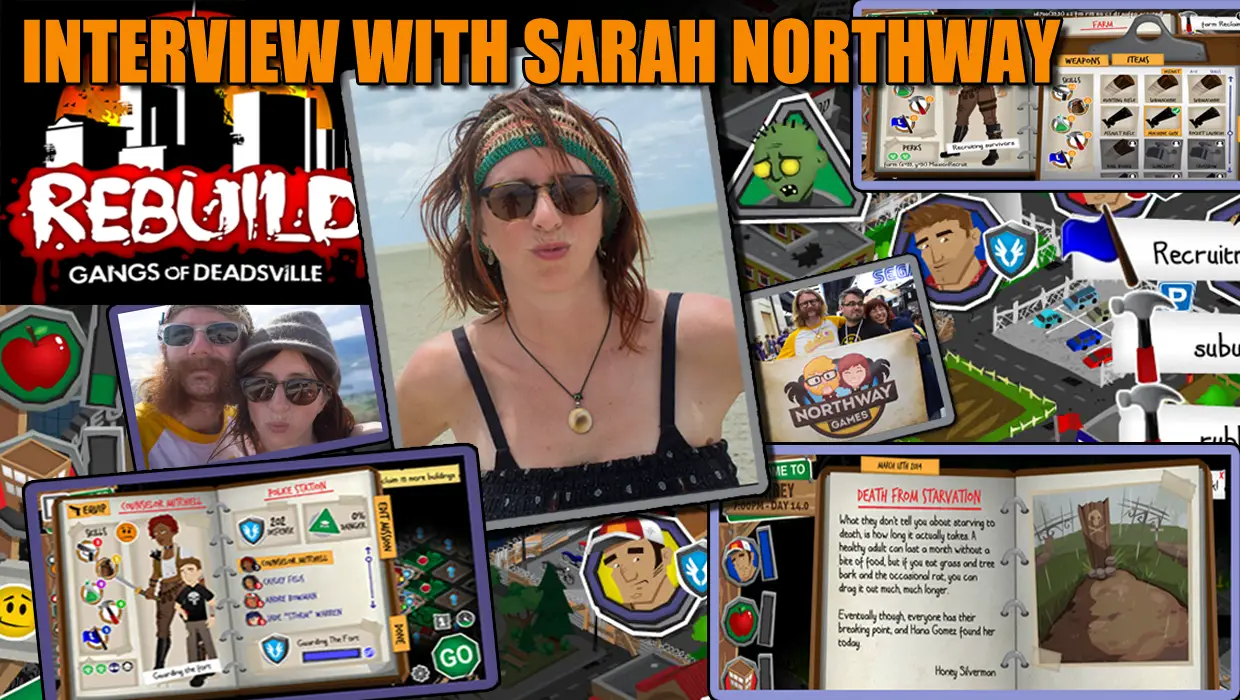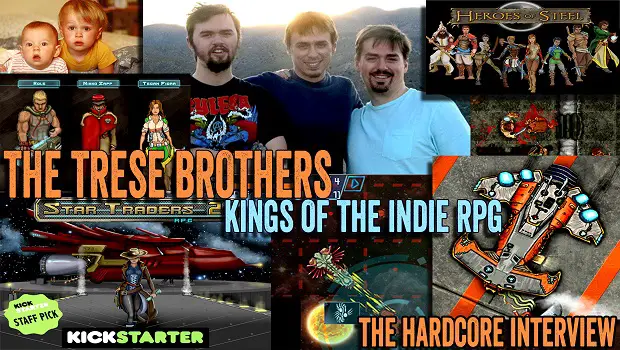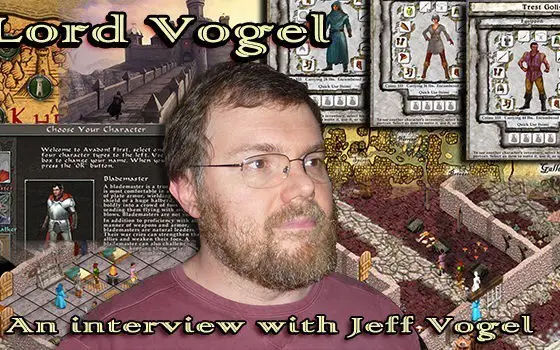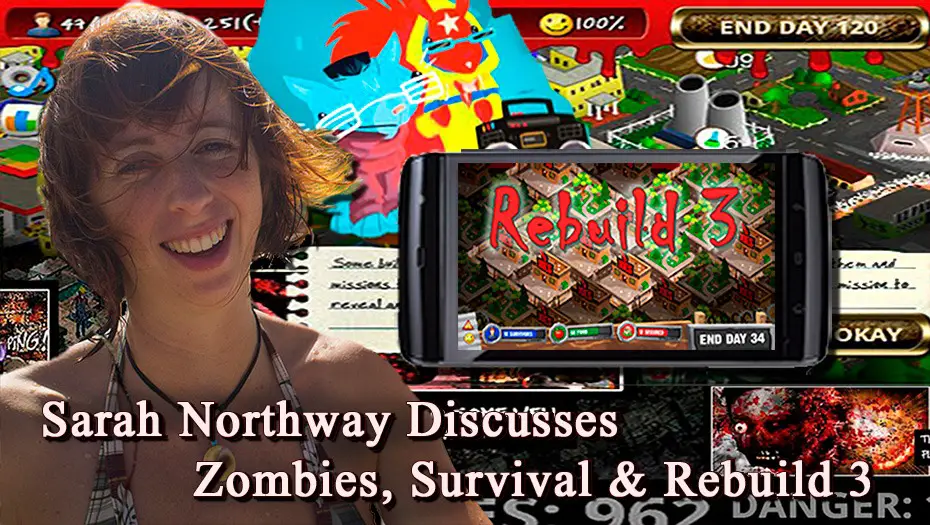HD: In 1983, your friend and co-author, Jim Schwaiger created a version of Oubliette for the home computer that is still frequently cited on video game forums. The interesting thing to me about this is that CRPG enthusiasts often cite Wizardry, 1981, and to a degree Rogue, 1980, as the granddaddies of the dungeon–crawl style CRPG. Yet Wizardry co-author, Robert Woodhead, cites the early mainframe CRPGs, like Oubliette, as Wizardry’s primary influence. So in a sense, not only is Oubliette clearly one of the great-grandaddies of the CRPG, it is the only one that’s still kicking.
Gaby: Robert Woodhead was an Oubliette fan and wrote Wizardry. A lot of the inspiration for Wizardry came from Oubliette.
HD: Why didn’t you develop the game after you first launched it?
JG: We had thought about trying to form a company and trying to do something but there was no infrastructure. I went to work for Bell Laboratories; I got involved in development there called VideoTech, a lot of early Internet-like experience. I went to work for AT&T, then General Instrument on something similar to that with cable companies, which had promised to do two-way cable, General Instrument was creating hardware systems to do that. Part of the appeal was creating an infrastructure to create a game. Both of those things fell through. After that I went off and did other things, and then recently I started thinking maybe I’ll do some mobile app development. I thought it would be kind of fun to bring Oubliette back and see if there’s any interest. It doesn’t have the flash of modern games though. Oubliette is kind of a labor of love for me, it’s kind of a blast form the past. It’s never going to make a ton of money.
HD: Will there be an Oubliette 2 or something of that nature?
JG: I’d like to ultimately create a multiplayer version. It would probably have to be free but there would still need to be enough people to make it a viable game and I’m not sure you could get enough people to play it.
HD: How would an Oubliette multiplayer game differ from the multiplayer games currently available?
JG: Lots of multiplayer dungeon type games don’t really require teamwork. Thousands of people play but they’re playing by themselves. With Oubliette, you could not play it by yourself, it was not possible. That’s the kind of game I’d like to see. You’d have to find enough people to play, however. I’ve played a number of massively multiplayer dungeon type games. There’s thousands of people playing yet everyone is playing by themselves. There’s very little cooperation and the game requires very little cooperation. You read the forums for those games and people say they don’t want to be forced to cooperate because you have to find other people to play with, and if you can’t find those people you can’t play. I think a game requiring cooperation makes for a much more interesting game.
HD: Do you stand out as one of the older game app creators? What do you bring to the table that the younger generation doesn’t?
JG: I’m older than most of the people creating games. I’m an old codger. I think I bring a different perspective but I’m not sure it’s a perspective that’s going to create successful apps of that genre. The things that are appealing to me are not things that will make them massively appealing. To me, the graphics are nice but it’s just eye candy. It’s all about how the game plays. There are all these real successful shooter games, but to me they are all the same, just different graphics, and yet they’re extremely popular. That’s not the kind of game I want to make so maybe the time has passed me by.
HD: Do you still have fans from the original Oubliette game?
JG: We have people who found us who used to play the old Commodre 64 and the PC versions, There are even people who used to play the PLATO version but it’s a pretty small number. PLATO was mostly at the University of Illinois – maybe 90 percent of the terminals were at the University of Illinois, so how may people could there really be? There were fan sites for the DOS and Commodore games that I hadn’t realized existed. They found the iPhone version. These sites have been around a while I guess.
HD: When did Schwaiger develop those versions and how much did you have to do to adapt them to Android?
JG: In the mid to late 80s, shortly after IBM –PC, Jim S. wrote the PC and the Commodore versions and he may have had an Apple II version too. I was off at Bell Labs. Those were all single player but interestingly enough the Android and iPhone versions are based on his code for the PC version. The maps are the same as are the monster tables and treasure tables. A lot of the game is the same game.
HD: How successful is the app so far?
JG: For the free version we have more than 30,000 downloads, we’ve probably only sold 4 or 5 thousand total. The Android version has actually been much more successfully than the iOS version. Apple is lot more crowded market, with many more apps. It’s a lot harder to get noticed on Apple. I’ve sold many more on Android but realistically, if you search for a game, no matter what criteria you put in, Oubliette is going to be way down the list. Unless someone tells you about it, you’re probably not going to find it.
HD: What old-school elements of Oubliette have garnered positive responses from players?
JG: One of the appealing parts is the fact that it is a hard game to playbut that’s going to appeal to only a small number of people. They’re the ones who are tired of these games that practically play themselves. Here’s a game where if you’re not careful you can wipe out your entire party, but that turns off a lot of people. I’m not really looking to create a massively successful game, however, I’m trying to create a game that I would like to play.
HD: There are a number of rather challenging facets to Oubliette, many of which aficionados would refer to as ‘Rogue-like’ or ‘old school’, like for example, the game’s map doesn’t reveal the player’s present location unless you have a special spell that shows your location on the map; the fact that the game limits saves; that elite classes are difficult to roll; and Hardcore Droid’s personal favorite: perma-death. Why did you include these elements? Have you softened the game difficulty level since its inception? Do you plan to soften it up a bit in the future? What’s changed since Oubliette mobile’s inception?
JG: The randomness of the character creation is a big plus in my mind although I get a lot of flack about that. People want to come in and choose their character and its stats. What you end up with, though, is everyone’s playing the same character, so everyone’s character is a carbon copy. In Oubliette, even if you can roll a ranger, they’re still not all the same because you don’t get to choose the stats. This turns a lot of people off, however. Everyone wants to have a ranger. The way a lot of these games deal with it is to balance the qualities so that all are equally desirable. In Oubliette, a ranger is going to be harder to level than a fighter and is much harder to ‘roll. There are trade-offs. It makes for more variety.
HD: When did you add the secret room and boss battles, and how and to what degree do these elements changed gameplay?
JG: Well, I am pretty sure that we did have secret rooms (at least on level 10) in the original PLATO version. Note that in the Android version there is only one boss monster at the very end. For the secret rooms on the other levels, the encounter generates monsters from two levels deeper, thus the special room is a harder room but the rewards are greater too. I remember that in the original PLATO game we had a special room on level 10 special rooms that had an item in it that we specifically placed there. People were always trying to go and get it, but it was very difficult
HD: What are some of your favorite aspects of the game?
JG: It’s kind of a strategy game, you run into a group of monsters and you have to figure out, ‘OK, how am I going to deal with this?’ It’s also kind of a resource management game, you have a finite number of resources and if you want to make a long trip — you want to go all the way down to level 8 or 9 and come back alive and you have to use your spells and other resources carefully. You need to pick your battles. I also like the fact that there’s a lot of strategy involved, that makes it more interesting than a lot of the games that I’ve played.
HD: Do you play it yourself? How do you do in the game? What’s your favorite character?
JG: I have tested the game a lot. I’ve created a party from scratch and have gone down to Level 11 and beat the boss monster. I haven’t played it too much recently but my latest goal is to create a party consisting of all Kobolds, which are wimpy characters, and go down and beat Level 11 with them.
HD: The Oubliette game world has its own language. Who invented it and when? Is there some place where interested players can read about it?
JG: David Emigh. He was a physics student, maybe also graduate. He fancied himself a linguist. He came up with the language we used for the spells. In the original version you didn’t pick the spells from a list. You had to type in the spell name and type it correctly. There’s an element of skill and learning. Originally if you wanted to cast a sleep spell, you had to type in the name for sleep. He created words in the language and then put the syllables together to make the words of the spell.
HD: What’s in store for Gaysoft’s future? Do you plan to create any more games?
JG: We have a number of puzzle games for tablets. I also have in mind bringing a multiplayer strategy game that ran via email to the mobile platform. It was basically a war strategy game I called “Stellar Empire.” Back then, I had 30 or 40 people that played it. This was back about 10 years ago.
HD: As an aside, do you need elite classes, like rangers, to complete the game?
JG: As a matter of fact I don’t even use rangers any more, they’re too hard to roll and you don’t really need them. Rangers are combination characters (they are a fighter, mage and priest). I use samurai as they are the best fighters. There’s nothing else that can touch them. You also need to have magic and cleric spells to survive, however. I just use mages and priests for that because they level a lot faster and are easy to roll. It’s simply too hard to roll a ranger. I don’t have the time.
HD: How many hours do you think it could take to complete the game? Have you estimated that?
JG: I’ve probably done it in maybe about 30 or 40 hours but I already knew how to play the game at that point. I focused on getting it through and getting down there and getting things done sooner than most people.
HD: Lastly, John, what gave you the idea to revive this classic in the first place?
JG: In the back of my mind I always thought it would be fun to bring back Oubliette, I kind of got the opportunity to do that and thought, “Let’s give it a go.”
And we’re glad John did. Hardcore Droid included GabySoft’s Oubliette on Trever Gulley’s The Most Hardcore RPGs on Android list as we felt that Gaby’s dungeon crawler, despite an overly cumbersome menu scheme, offers the sort of depth and challenge that hardcore gamers of the old-school revere. Oubliette is available for download on Google Play for $3.99. ~ed
